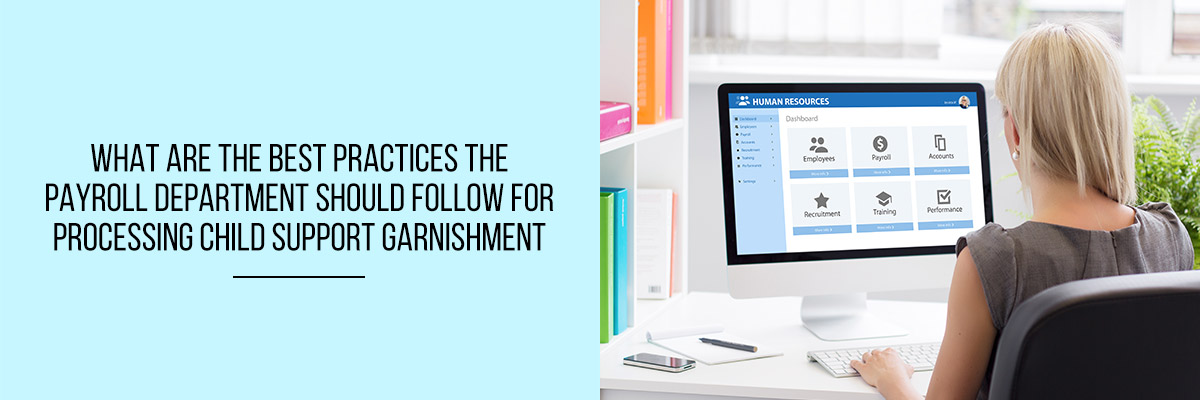Child support garnishment is a federal and state law, which makes compliance with these laws an obligation and not a choice. And when the non-custodial parent does not voluntarily give the amount for child support to the custodial parent, the custodial parent can claim the child support garnishment to the local child support agency.
Most commonly the cases are processed and a letter of the deduction would be sent to the non-custodial parent’s employers to deduct the amount from their disposable income. This is where the role of the payroll department starts.
Payroll departments are not only responsible for the time deduction of these amounts as stated in the IWO order sent by the court, but also must ensure to comply with the policies and laws of the state and federal laws. Since the failure of the payroll department can directly impact the company and might bring some penalties along, it’s important to be careful on how to process child support garnishment.



Here are some best practices the payroll department should follow for processing child support garnishment:
1. Confirm doubts about the order and act immediately
Remember that upon the arrival of the order, you are legally obligated to comply with it. Failure to do so might result in employers being held in contempt of the court or even responsible to pay the full debt. Most states have a time limit of not delaying the withholding amount more than 14 days for the next payment, but the sooner it is the better. Also remember that for any further confirmation of information provided to you, you can contact the sender of the order, but meanwhile, you should already be starting with the procedure of withholding the child support amount.
2. Respond if the person is not employed by you
It’s not uncommon to receive notices even after the employee has left the job or didn’t work at your organization at all. Either way, it is a legal notice and must be answered. So if the employee is no more working in your company or didn’t work at all, make sure you inform the sender of the order or court as soon as possible. Failure to do so will cause you heavy penalties and charges of disobedience to the law.
3. Don’t side with the employee
Disagreements are common, but make sure you do not side with the employee when they ask you to not deduct the amount from their wages. Stay in compliance with the law and inform employees that they can share their concerns with the court or child support agency.
4. Deduction is done from the disposable income
Payroll departments must be aware of the fact that child support deductions are made from the disposable income of the employee. That means the amount left after the deduction of taxes, insurance, and other deductions. It is even more complicated if the employee is from a different state that follows different laws.
5. Tips are not considered wages
Employee tips are not considered employee wages or disposable income. So make sure you don’t count their tips and do not deduct the amount
6. Law protection
Employees with single garnishment debt are protected by the law. Hence important for employers to remember that they cannot fire the employee. Or be taken any discriminatory act against, including by the payroll department.
Final Words
Payroll is not an easy calculation of amounts by each month’s end, but also requires keeping up to date with the laws and regulations. Encourage your payroll departments in the organizations, and always cross-check audits and reports with a fresh pair of eyes in case your professionals have missed something, after all, we are all doomed to make mistakes. But mistakes in payroll can come costly, so it’s important to make sure there are no mistakes.


